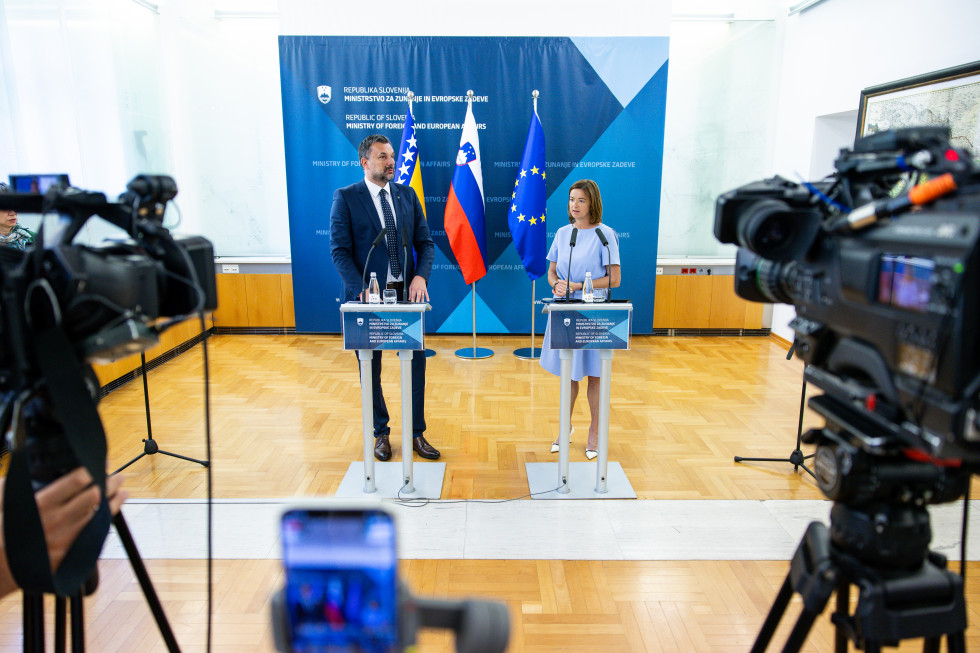Minister Fajon: “Slovenia remains a firm supporter of Bosnia and Herzegovina on its reform path”

Minister Fajon and Minister Konaković during the press conference | Author Ministrstvo za zunanje in evropske zadeve
Minister Fajon stressed that Slovenia and Bosnia and Herzegovina have many things in common, including their shared past and the will to maintain their traditionally friendly relations. A common future in the EU, where Bosnia and Herzegovina belongs, also links the two countries. “As a big supporter of Bosnia and Herzegovina on its reform path, Slovenia invested considerable effort in helping the country get candidate status last year. Yesterday, on the 20th anniversary of the EU-Western Balkans Summit in Thessaloniki, I gave a public statement, along with President Nataša Pirc Musar and Prime Minister Robert Golob, restating Slovenia’s clear message that we will continue to strive for the EU’s enlargement to the Western Balkans,” said Minister Fajon at the press conference.
Regarding the current situation in Bosnia and Herzegovina, Minister Fajon commended the positive steps and ambitions to implement reforms, as already demonstrated by some progress. “The following months will be crucial for Bosnia and Herzegovina to show the results of the priority tasks that must be fulfilled before initiating accession negotiations with the EU. Some important steps have already been made and I sincerely hope the EU Summit will also recognise this progress when deciding on further enlargement steps,” said the minister. She once again expressed Slovenia’s preparedness to assist Bosnia and Herzegovina with its knowledge and experts.
Regarding bilateral relations, the ministers agreed that recently the two countries have significantly strengthened their political and economic cooperation. “I am very pleased that the volume of trade between the countries is approaching the record number of two billion euros and that we are witnessing growth in nearly all areas. Another testament to our long-time extensive support for Bosnia and Herzegovina was the appointment of the Slovene Ambassador in Geneva as the head of the working group for Bosnia and Herzegovina’s accession to the World Trade Organization,” added Minister Fajon.
They both also voiced their support for enhancing cooperation in the multilateral sphere. “I assured the minister that as a non-permanent member of the UN Security Council for the 2024–2025 term, Slovenia will make sure that the Western Balkans region is placed on the agenda of the Security Council if and when necessary,” she stressed.
Minister Fajon expressed her satisfaction at the appointment of a new High Representative of Bosnia and Herzegovina for Succession Issues, which allows for a revival of the dialogue between successor states at the level of high representatives. As to the current situation in the region, the ministers agreed that the conditions in the north of Kosovo are extremely concerning and they called for the stabilisation of the situation.
